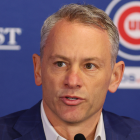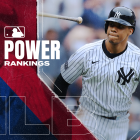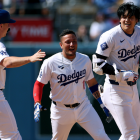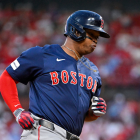
The day after his surprise dismissal of David Ross as manager and his even more stunning hiring of former Brewers skipper Craig Counsell to succeed him, Chicago Cubs president of baseball operations Jed Hoyer fielded questions about those dual decisions.
The Cubs made the moves on Monday, and it was shocking for two primary reasons. First, Ross had led the Cubs out of their rebuild into wild-card contention this season with an 83-97 record. The strides were such that owner chairman Tom Ricketts gave Ross a de-facto vote of confidence after the regular season ended. As well, Ross was under contract for 2024 with a club option for 2025. Beyond that, the Cubs were never a part of the Counsell suite of rumors leading up to the decision. Instead, he was assumed bound for the Mets or back to the Brewers or even to the Guardians, with whom he also interviewed.
The Cubs-Counsell pairing thus came together quickly and unexpectedly, and according to Hoyer it was in the name of improving the team. "My job is to figure out how to win as many games as we possibly can in the short term and the long term," Hoyer told reporters, including Meghan Montemurro of the Chicago Tribune, on Tuesday, "and there was nothing about this move that didn't feel like met that criteria."
Without question, Counsell is indeed at the top of his craft – tactically, in terms of steady demeanor, and when it comes to running a clubhouse. His reputation across the league speaks to this, as does his sustained record of success with the small-budget Brewers.
Still, implicit in the booting of Ross for Counsell is that Ross wasn't the ideal fit for the job moving forward. On that matter, Hoyer said:
"This is no knock on Rossy, who I think incredibly highly of, but Craig is at the very top of the game. It's hard to rank managers but he's at the very top of the game."
The change was likely awkward and uncomfortable in execution, but Hoyer presumably would not have given Counsell the largest managerial contract in MLB history had he not believed he would make the Cubs better than Ross would. That's a defensible stance, but it comes with pressure for that assumed upgrade to be borne out in the standings.






















